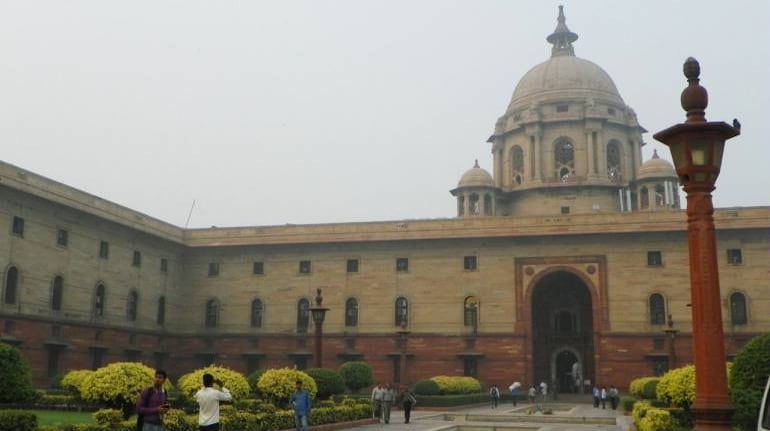



If the Indian public has been bearing the brunt of high inflation, it is now the government's turn to pay to control it.
In a series of tweets on May 21, Finance Minister Nirmala Sitharaman announced a slew of measures to reduce price pressure for consumers, the most eye-catching of them being a reduction in the excise duty on petrol and diesel by Rs 8 per litre and Rs 6 per litre, respectively, a move that will see the Centre forgo a tad less than Rs 1 lakh crore in revenue this financial year.
There were other announcements on May 21 with considerable fiscal implications: an additional fertiliser subsidy of Rs 1.10 lakh crore, a gas cylinder subsidy worth Rs 6,100 crore, and reductions in customs duty on certain inputs.
These hits to the Centre's revenue come close on the heels of the Reserve Bank of India's (RBI) board on May 20 approving the transfer of Rs 30,307 crore as dividend to the government for FY22, likely less than half of what the government had budgeted.
As per the 2022 budget, the government had expected to receive Rs 73,948 crore as dividend from the central bank and state-run lenders this year. The dividend from the RBI would have formed almost all of it, having been responsible for 98 percent of the dividend in FY22.
| FY23 FISCAL MATH UPENDED? | |
| A: RECEIPTS | |
| Estimated revenue loss (in Rs crore) | |
| Union excise | 83,000 (pro rata for 10 months) |
| RBI, PSU bank dividend | 43,641 (assuming zero PSU bank dividend) |
| Disinvestment | 41,000 |
| B: EXPENDITURE | |
| Estimated extra spending (in Rs crore) | |
| Fertiliser subsidy | 1,10,000 |
| Garib Kalyan Anna Yojana | 80,000 |
| Gas cylinder subsidy | 6,100 |
New Delhi, which has deftly managed the widening exchequer since the coronavirus pandemic ballooned its budget gap, will likely rely on the resilience of the economic recovery to manage its finances. In an interview to CNBC-TV18 on May 23, RBI governor Shaktikanta Das said his discussions with the government left him with the feeling the fiscal deficit target would be met. How the government would do so, Das said it was not for him to answer.
Gloomy expectations
However, economists expect what initially seemed would be a modest amount of fiscal consolidation to not occur at all in FY23 now, with the fiscal deficit expected to come in at 6.9 percent—unchanged from FY22.
"Overall, we estimate an incremental fiscal shortfall of Rs 4 lakh crore for the government," noted Rahul Bajoria, chief India economist at Barclays.
| ORGANISATION | FY23 FISCAL DEFICIT ESTIMATE (as % of GDP) |
| IDFC First Bank | 6.7% |
| Kotak Economic Research | 6.8% |
| BofA Securities | 6.8-6.9% |
| Barclays | 6.9% |
| Emkay Global Financial Services | 6.9% |
| Motilal Oswal | 6.9% |
Economists had said in February that several budget numbers seemed to be underestimates, including the nominal GDP growth assumption and tax collection estimates.
According to Aditi Nayar, chief economist at ICRA, the Centre's tax revenues in FY23 are likely to exceed the budget estimate by at least Rs 1.3 lakh crore even after the excise duty cut is taking into account. There has also been talk of a cut in the capital expenditure in recent days. However, none of this is likely to be enough.
"The fiscal hit in the form of higher doles on food and fertiliser subsidy, and lower divestment and telecom proceeds, excise cuts and reduced RBI dividend may outstrip buffers such as inflation-led higher nominal growth, better direct tax buoyancy and possibly some capex cuts," said Madhavi Arora, lead economist at Emkay Global Financial Services.
While the measures may help lower inflation—economists see them having a downward impact of up to 50 basis points on Consumer Price Index (CPI) inflation over a period of time—it won't be enough to stop the RBI's rate-hike march.
Barclays' Bajoria, for instance, still expects the repo rate to be increased by 50 basis points on June 8 before being raised by a further 25 basis points by August.
"While the fiscal measures could help cool price increases, and modestly reduce pressure on the RBI to take frontloaded rate hikes, they are unlikely to be sufficient to divert the central bank from its path of monetary tightening," Bajoria said.
Discover the latest Business News, Sensex, and Nifty updates. Obtain Personal Finance insights, tax queries, and expert opinions on Moneycontrol or download the Moneycontrol App to stay updated!
Find the best of Al News in one place, specially curated for you every weekend.
Stay on top of the latest tech trends and biggest startup news.